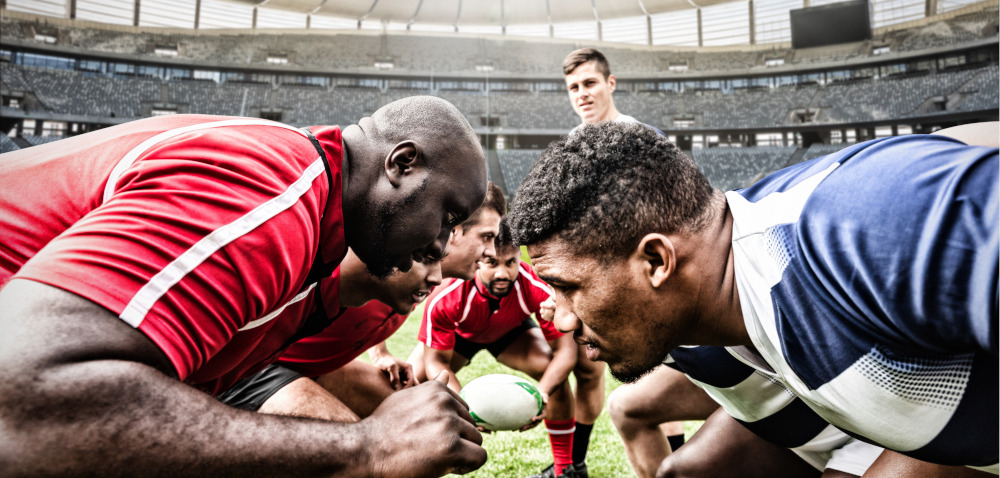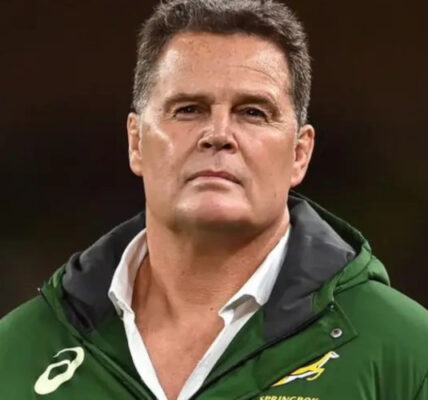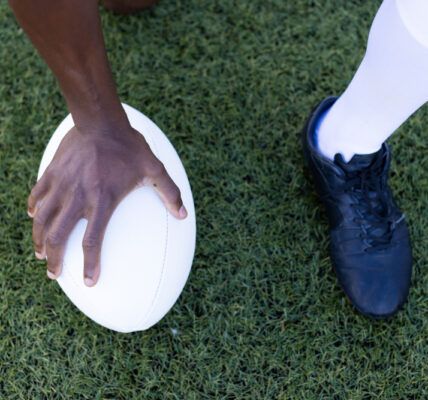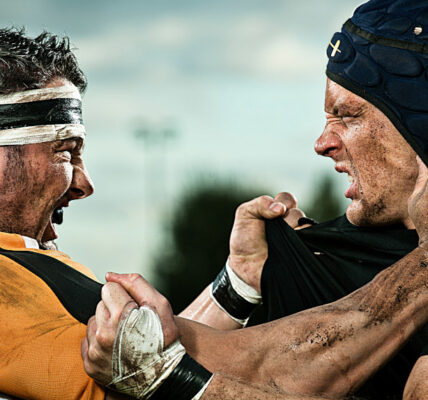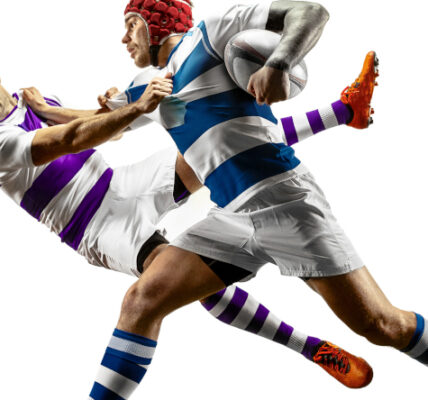KwaZulu-Natal has long been a breeding ground for some of South Africa’s finest rugby talent. From legendary Springboks like John Smit and Bismarck du Plessis to rising stars making waves in international arenas, the province’s contribution to the national rugby narrative is undeniable. But behind every breakout performance lies years of structured development, tireless mentorship, and an ecosystem that grooms not just athletes, but professionals.
In the middle of this ecosystem are KZN’s high-performance rugby academies. These are not simply training centres, they are launchpads for potential. And in 2025, with professional rugby more competitive and data-driven than ever, these academies are evolving rapidly to meet the modern demands of the sport.
The New Age of Athlete Development
Gone are the days when raw talent alone could carry a schoolboy through to professional rugby. Today’s academies function more like elite incubators, with a focus on holistic development. Physical strength, speed, and technique are only part of the equation. Equally important are academic support, mental conditioning, nutritional guidance, and injury management.
The Sharks Academy, located at Kings Park Stadium in Durban, remains the flagship of the region’s development structure. Backed by the Cell C Sharks and fully aligned with national high-performance protocols, it draws students from across the country, and increasingly, from abroad. “We’re not just trying to produce rugby players. We’re developing resilient young men and women who understand discipline, professionalism, and responsibility,” says Academy Director Jason May.
Daily schedules often begin before sunrise. Conditioning, skills training, and team analysis sessions are woven around academic lectures and personal development workshops. The demands are rigorous, but the rewards can be life-changing. In a forward-thinking move, most of KZN’s leading academies have now partnered formally with tertiary institutions. The Sharks Academy, for example, works closely with ETA College and the University of KwaZulu-Natal (UKZN), allowing players to pursue qualifications in sports science, business, or education alongside their athletic training.
This dual-career pathway has become a central tenet of modern player welfare. It ensures that if a professional rugby contract doesn’t materialise their future remains secure. “For too long, rugby in South Africa neglected the importance of post-rugby life. That’s changing now, especially in KZN,” says Dr Lerato Dlamini, an academic advisor at UKZN’s Sport and Recreation Department. “We are seeing more complete individuals leave the academy system, individuals who are as prepared for the boardroom as they are for the backline.”
Spotlight on Talent Identification
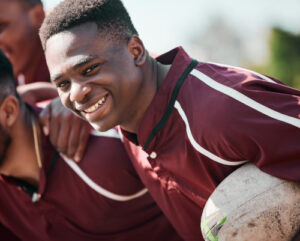 One of the key strengths of the KZN system lies in its talent pipeline. Scouts are increasingly reaching into under-resourced regions, identifying promising players from rural schools and township clubs. The goal is not just to widen the talent net, but to level the playing field.
One of the key strengths of the KZN system lies in its talent pipeline. Scouts are increasingly reaching into under-resourced regions, identifying promising players from rural schools and township clubs. The goal is not just to widen the talent net, but to level the playing field.
Thanks to initiatives like the Sharks Talent ID Programme and the KZNRU’s development league, dozens of schoolboys from non-traditional rugby schools have found their way into the academy system.
Take the case of Sibusiso “Sbu” Mnguni from Empangeni, who just three years ago was playing barefoot rugby on a gravel pitch. Spotted during an inter-school tournament, Sbu was offered a scholarship to attend a Durban-based school partnered with the Sharks Academy. Today, he captains the U20 side and is being considered for a senior Currie Cup call-up. “I never imagined this path,” says Sbu. “The academy gave me tools, discipline, and belief.
The rise of performance analytics has transformed the way coaches approach player development. GPS tracking, heart rate monitoring, and video analysis are now standard tools across the KZN academy circuit. At Kings Park, data collected from training and matches is immediately fed into analysis systems that evaluate workload, efficiency, and risk of injury. Players receive individual reports that guide their weekly goals, from adjusting sprint intensity to improving tackle technique. This scientific precision allows coaches to tailor their strategies and intervene early when performance dips or injury risk rises.
“We no longer rely on guesswork,” says fitness coach Amanda Jordaan. “We can see the stress response in an athlete before they even feel discomfort. That’s a game-changer for career longevity.”
Mental Health and Player Psychology
Rugby is as psychological as it is physical. Pressure, expectation, competition, all of these can weigh heavily on young shoulders. In response, KZN academies have invested in full-time sports psychologists and mental wellness programmes. Weekly sessions address everything from performance anxiety to identity issues and lifestyle balance. Workshops on emotional intelligence, leadership, and media handling are also common.
“When players feel supported off the field, their performance on the field naturally improves,” says clinical psychologist Dr Reema Naidoo, who consults for several provincial sides. “We teach them how to win, but also how to lose with perspective.” While high-performance centres grab the headlines, community rugby clubs across KwaZulu-Natal continue to play an essential feeder role. Many of the province’s finest talents began their journey at humble local clubs where passion, rather than prestige, drives the programme.
To strengthen this relationship, the KZNRU has launched bridge programmes that connect academies with community coaches. This ensures alignment in playing philosophy, coaching technique, and values. “When the whole province speaks the same rugby language, the pipeline becomes seamless,” says Thando Zwane, development manager for rural outreach. “No kid should feel left out just because they weren’t in a top private school.”
Looking to the Future
KwaZulu-Natal’s rugby academies are now attracting interest from European and Japanese clubs eager to tap into this robust development model. Exchange partnerships are emerging, offering selected players short-term contracts or training camps abroad, a trend that expands experience without draining local talent.
The academies themselves are also evolving. Plans are underway for a new satellite high-performance hub in Pietermaritzburg, with a focus on nurturing U16 and U18 talent from inland districts. Meanwhile, online training modules and hybrid learning systems mean that players no longer need to be physically present in Durban to access elite support.
In the grand scheme of professional rugby, the academy years are a relatively small window. But what happens during that window often determines whether a young player sinks, swims, or soars. KwaZulu-Natal’s investment in high-performance academies is not just about producing future Sharks or Springboks, it’s about shaping responsible, resilient individuals who carry the spirit of rugby into whatever future they choose.
From the strength room to the classroom, from GPS tracking to village scouting, the province’s holistic, people-first approach to development is positioning KZN as a model for the rest of South African rugby. The players of tomorrow are already training today. And in KZN, they are doing so with purpose, precision, and the kind of support that makes all the difference.
